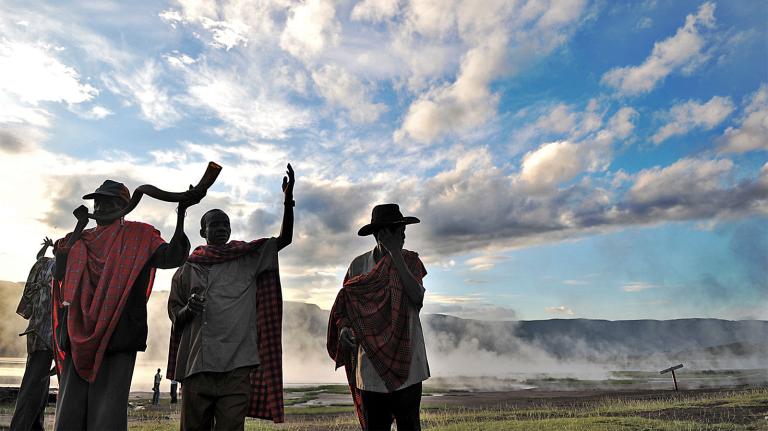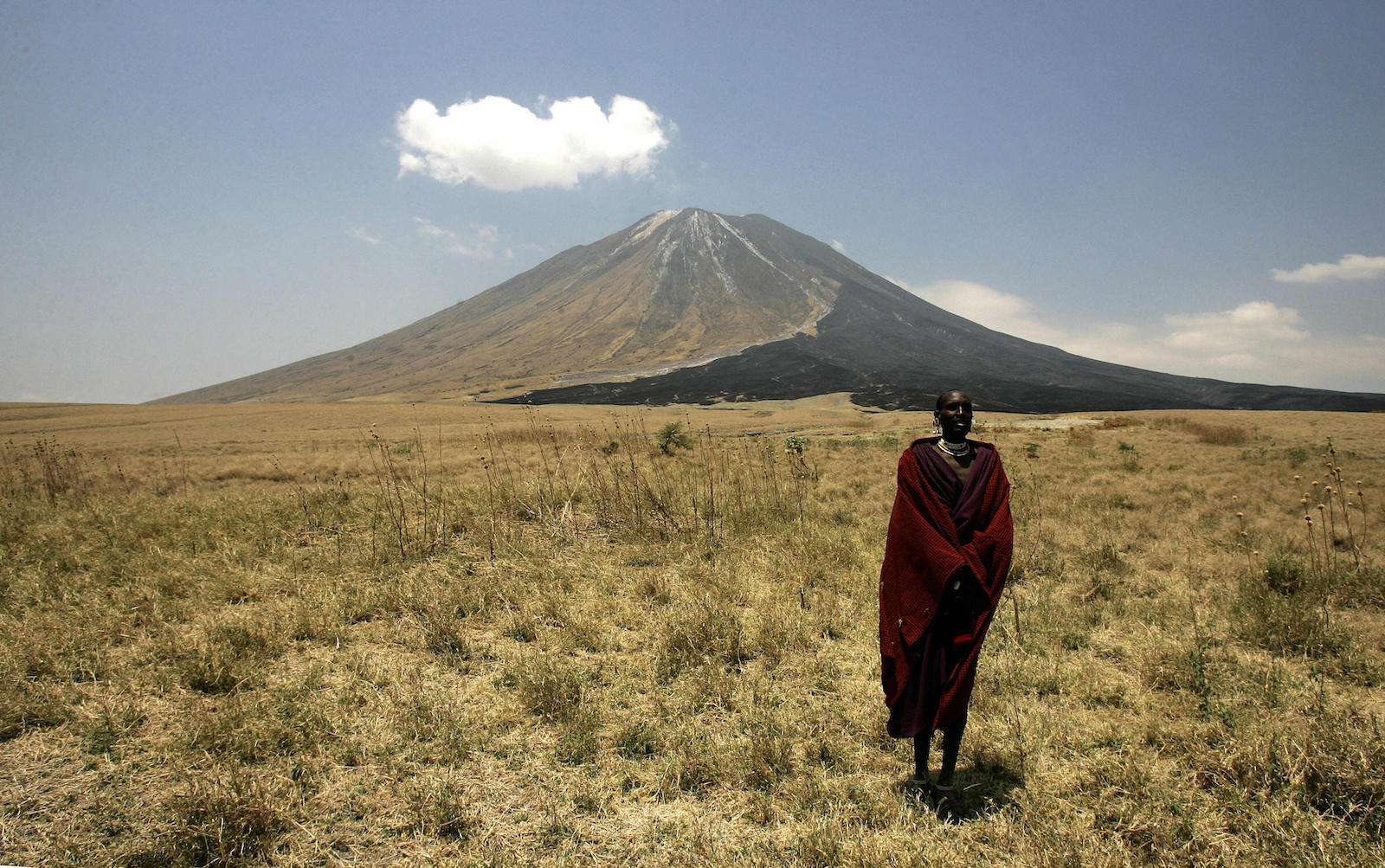Located in the United Republic of Tanzania, the Ngorongoro Conservation Area is a UNESCO World Heritage Site famous for its beautiful landscape and “Big 5” game — elephants, lions, leopards, buffalo, and rhinoceros. Every year, the area’s attractions draw hundreds of thousands of visitors from around the world. The park is also home to roughly 80,000 Indigenous Maasai people who have called the region home for millenia, living on the rich and fertile landscape. But since its creation in 1959, the Ngorongoro Conservation Area (NCA), the Maasai population in the park has steadily increased. Now, the government is trying to evict the Maasai, a move officials say is necessary to protect the park’s environment, but that the Maasai say is an attempt to sacrifice their way of life for tourism and profit.
According to a new report from the Oakland Institute, a California-based think tank, Tanzania’s proposed resettlement sites have “serious issues” for the Maasai and are critically flawed. “While denying plans for mass evictions in the NCA, the government’s strategy to deprive residents of basic services and the ability to graze livestock, leaves the Maasai with few options for survival in the land they have stewarded for generations,” said Anuradha Mittal, Oakland Institute’s Executive Director.
Around the world, Indigenous people are being evicted and even murdered by governments and international NGOs in the name of conservation, despite strong evidence that Indigenous land stewardship is actively helping biodiversity. Both the Maasai and international advocacy groups have strongly resisted what they are calling an illegal eviction. The Maasai and international groups have called on the Tanzanian government to respect their rights before making any decisions regarding the land and Maasai stewardship of it. In April, eight U.N. Special Rapporteurs also raised concern about the evictions, and this month, the United Nations Permanent Forum on Indigenous Issues called on Tanzania to immediately stop the eviction plans.
According to the report, the Tanzanian government has failed to live up to the promises it made in its resettlement plan. Based on field research at three proposed resettlement locations, the report identifies several areas where the actual sites lack adequate water, sufficient grazing land, and other infrastructure promised by the government. The sites are also not equipped to provide healthcare, education, and other social services that were supposed to be a part of the plan.
Local, non-Maasai residents also say they were never consulted about receiving the resettled Maasai population and the report identifies an increased risk of conflict because of the plan, pointing to one resettlement that has already seen conflict over limited water and grazing resources. The report alleges that the influx of Maasai from NCA would only add to the chance of conflict.
The Oakland Institute is calling on the Tanzanian government to stop the eviction plans and to give the Maasai more decision making power. It also calls on UNESCO to use its leverage to help the Maasai. Tanzania’s Ministry of Natural Resources and Tourism and UNESCO did not immediately respond to a request for comment.
“It is imperative that Indigenous residents of the NCA are not just consulted but given real authority over any resettlement schemes or changes to land use regulations,” Anuradha Mittal said.



